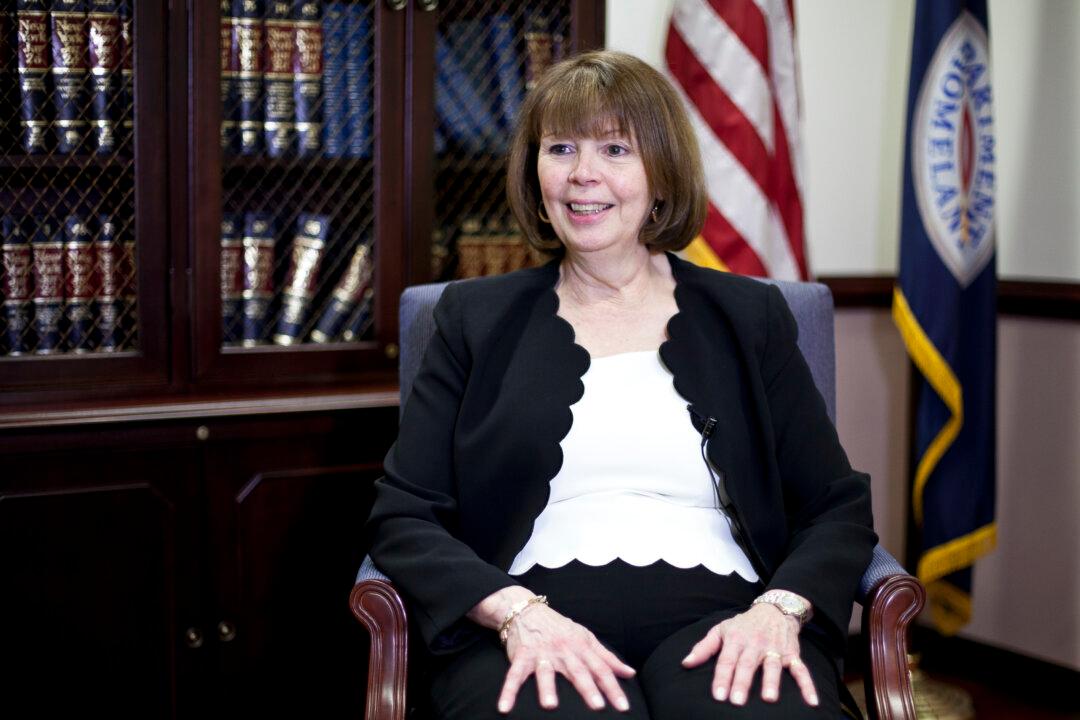NEW YORK—Andrea Quarantillo recalled the crowd of Muslims and Arab protesters gathering in front of the citizenship and immigration services building during the period following Sept. 11, 2001.
Immigration cases were put on hold. Families were thrown into a state of uncertainty as they waited for their national security checks to be completed.
“To them, it hurt, because it meant we thought they were disloyal. That was a very hard time for me, I felt bad for how it all worked out,” said Quarantillo, retiring New York District Director for the U.S. Citizenship and Immigration Services.
“That upset my sensibilities of what we are as a nation of immigrants,” she said. “I’m not saying it was wrong, there were lots of reasons for it ... but gaining citizenship for immigrants, welcoming them into the American family is really the most basic foundation of American society.”
Regardless of ethnicity, occupation, or gender, each case file was a delicate life story to Quarantillo. She said she felt a personal investment in each naturalization.
Quarantillo has been the New York district director since 2006, seeing thousands of people naturalize each year. As retirement is approaching, Quarantillo looks back on her 35 years in the immigration sector and says that the most important lesson she learned from her job can summed up in two words: people first.
“I’m a big believer in if you get the people part right, everything else will work out,” she said. “But when I started my career I don’t know if I would have expressed it quite that way.”
“I think I’ve grown into it because of the work we do and how we deal with people, their life stories, their hopes, their dreams, and your staff that wants to grow and progress, and how you mentor them,” Quarantillo said.
Quarantillo grew up by the Niagara Falls border between the United States and Canada and had originally wanted to become a teacher.
She received her undergraduate degree at Syracuse University, and her master’s in public administration at Rutgers University.
“At the time there weren’t many permanent teaching jobs open,” she said. Quarantillo was looking for a teaching job when she took the federal workforce exam—which required her to check a list of interests. She got a call back from the immigration department.
Hence, Quarantillo’s first job in the immigration sector began as an inspector at Toronto Airport, screening people who came into the United States.
Gradually, she came to the realization that working for the Immigration Department was a very meaningful occupation for her. “I think my grandparents would be amazed if they knew that I can welcome people like them in America,” she said.
“You hear their individual stories, read case files of life stories, of persecution and torture,” Quarantillo said. “From a humane standpoint, it’s very satisfying to see people come into the country. You think back on your own roots.”
Quarantillo’s grandparents had emigrated from Sicily, Italy, at the turn of the 20th century.
Her grandfather had left Italy first, followed by her grandmother, who made the ocean voyage during her eighth month of pregnancy. The first of their 11 children was born on the ship as the grandmother was crossing the Atlantic Ocean.
“I very rarely discuss this story, I did it once at a naturalization ceremony and I got so emotional,” she said. “ When I’m standing in front of new immigrants and it’s so real, I’m practically seeing my grandparents in front of me.”
She teared up as she visited the Queens immigration center for the last time on Tuesday, recalling the first day that it had opened at the start of 2012.
“Opening the office was a big deal, we were so happy because it was the first time in decades that we opened another office in New York,” Quarantillo said. “It means easy access for Queens residents.”
She leaves office with some words of advice for the new immigrants to come.
“A lot of new immigrants run afoul of the law in minimal ways because they’re not use to things like drunk driving laws or how to pay their bills,” she said. “Whether you’re documented or not, I would say it’s very important to understand American culture.”
“Gaining citizenship for immigrants is what keeps us fresh, it’s what keeps us vibrant. From the standpoint of public good, it’s just wonderful to bring people in,” she said.




